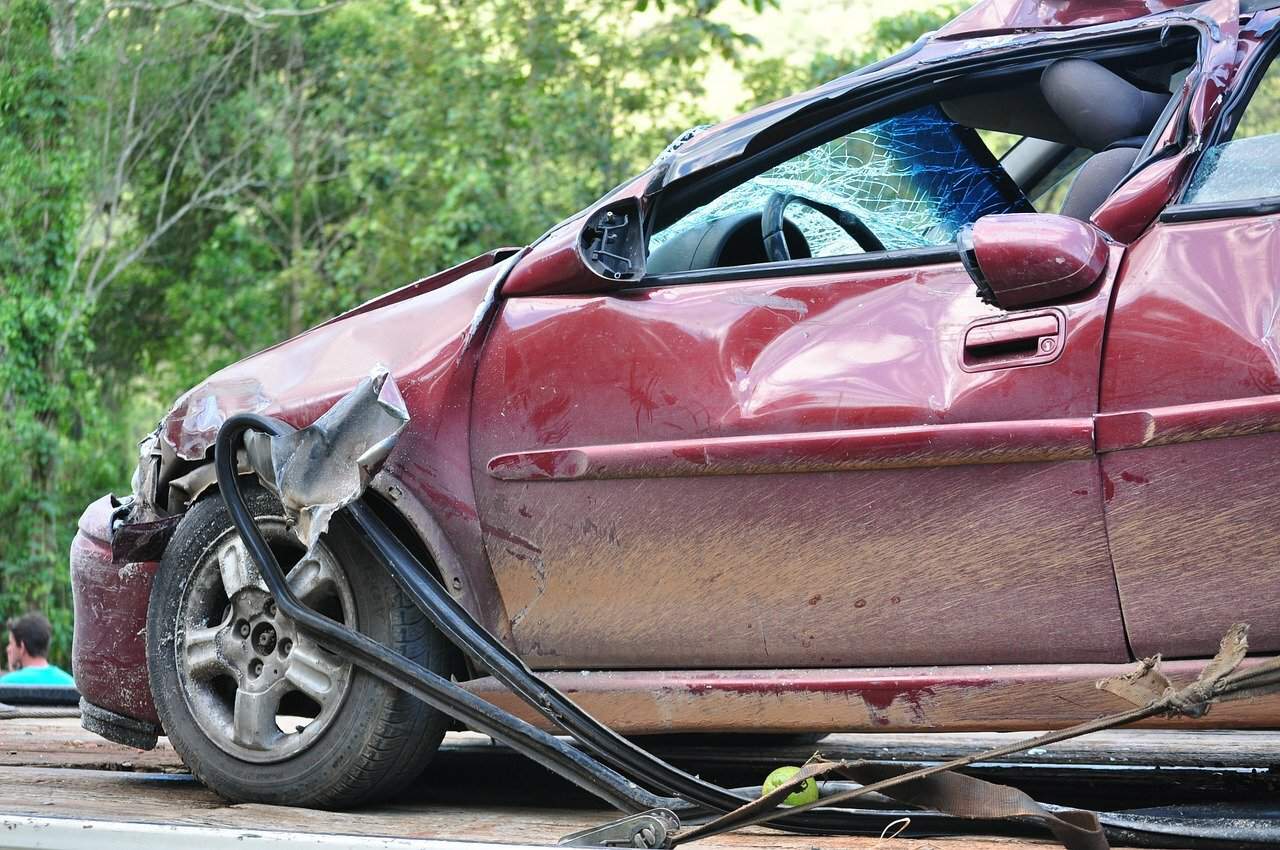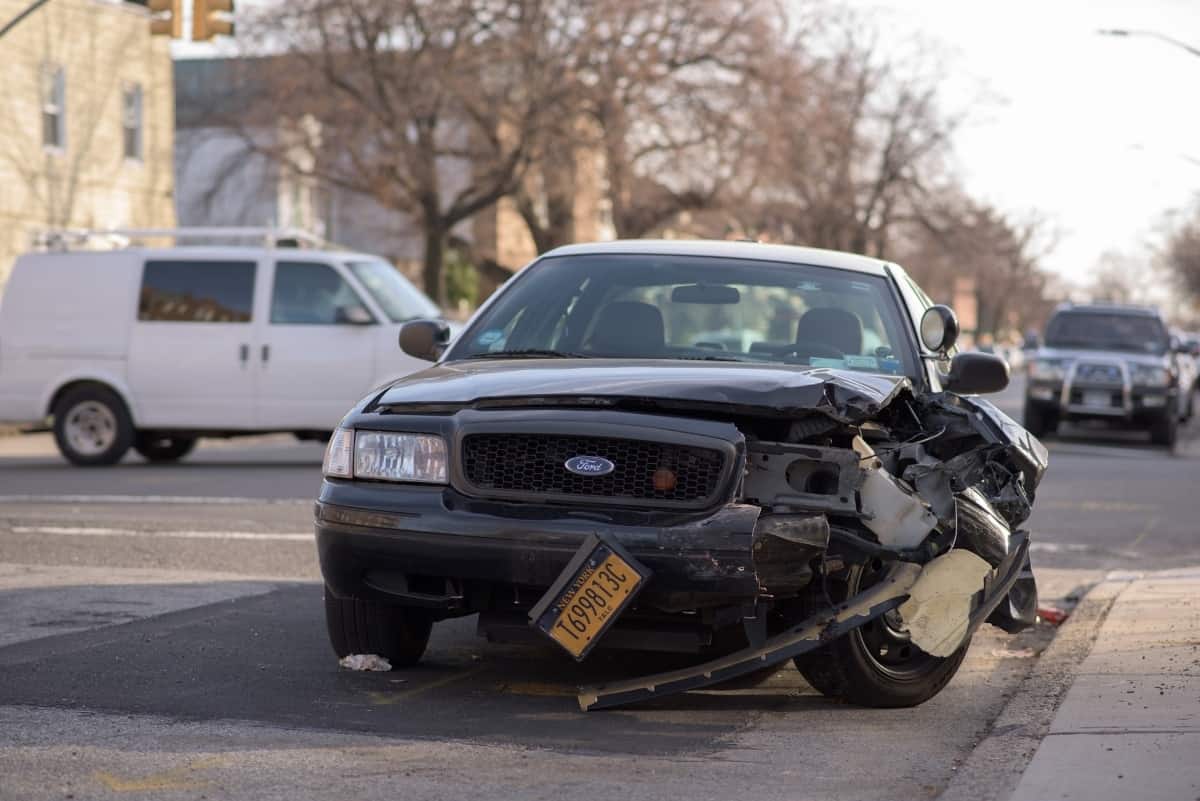Many frustrated drivers ask why or when does an insurance company total a car? In the simplest terms, the answer is when the insurer decides the cost of repair is likely to exceed the sale price of the vehicle.
This decision often frustrates owners. Cars these days are complex. Even the most minor damage, such as scratches, dents, and even hailstones, can be tremendously expensive to fix.
And new vehicles, particularly, depreciate so quickly. Perhaps as much as 20% in the first twelve months. Therefore, even with relatively low mileage, they’re likely to be worth much less than their owners hope and believe.
For example, in 2017, the Department of Transportation estimated the average age of vehicles on American roads to be 10.5 years old. And over 30% of cars and trucks of this age can expect to be totaled after an accident. All of this means that insurance total losses, or “write-offs”, are much more common than you think.
Keep reading for clear answers on when does an insurance company total a car.
How Insurers Decide When to Total a Vehicle
To understand when does an insurance company total a car, you’ll need to know about the total loss formula (TLF).
If the salvage, or “scrap,” value plus the cost of repair is more than the estimated sale value of the vehicle before the accident, it’s likely to be in your insurer’s interest to declare a total loss.
To begin the process, an appraiser will determine the price your pre-accident or repaired vehicle might fetch in the used car market. This will depend on the model, make, age, and general condition of the car. But be aware the insurer will try to pay out as little as possible. So their valuation will inevitably be considerably lower than you’ll find in any used car publications or websites.
And insurers, of course, have an abundance of industry sources and statistics at their disposal, which make it very difficult to challenge their valuation.

How Different State Regulations May Impact the Decision
Different states apply different regulations for when an insurance company totals a car. Similarly, insurers also have their own methods of calculation.
Some 22 states require insurers to use the TLF (total loss formula) as described above. But the remainder requires insurers to apply a percentage of the TLF. In Iowa, for example, a car must be considered totaled if the repair plus salvage cost is as low as 50% of its likely pre-accident sale value. But other states apply a variety of figures, typically ranging between 60-80%. And, since many insurers operate in multiple states, they typically seek consistency by declaring total losses on lower figures than may be required under the law of the driver’s home state.
It’s therefore important to be aware of the regulations that apply to you, and the percentage that your insurer is likely to use.
What Happens When a Car Is Totaled
If you accept your insurer’s decision that your vehicle is a total loss, the car will become your insurer’s property. They will require you to:
- surrender all keys to the company or its representative, such as an appointed loss adjuster
- remove the license plates and any personal possessions from the interior
- complete the necessary paperwork to transfer title
- inform your finance company if the vehicle is subject to a loan or leasing agreement
The insurer will then notify the relevant DMV and pay you the cash value of the vehicle — according, of course, to its own valuation.
Your Other Options as a Car Owner
Before your vehicle gets totaled, you can challenge the insurer’s decision.
Many vehicle owners will believe the insurer’s valuation is too low, and perhaps has failed to consider any improvements they have made to the vehicle. In this case, it is open to you to negotiate with the loss or claims adjuster. But you will need to supply documentation to support your argument. And remember the adjuster will act on behalf of the insurer rather than you.
In an extreme case, you might even consider referring your case to a specialist attorney, though this is probably only worthwhile in the case of high-value vehicles. Your other option is to reject the insurer’s offer, keep the car and either have it repaired at your own expense or negotiate a private salvage deal.
The latter option isn’t usually easy, but it may be viable if you are knowledgeable about cars–or know someone who is–and think you can drive a good bargain on parts or scrap metal.

What to Expect if You Reject Your Insurer’s Offer
Most insurers will allow you to do this, but will still only pay their valuation, less your deductible and the salvage value. And you will thereafter only have what’s called a “salvage title” to your vehicle. This means you cannot lawfully claim to have a “clean title” if you want to resell.
The other issue with this approach is that repairs are expensive, and you will have to pay for an inspection before you can sell or drive the car again. You will also have the problem of finding a new insurer for the repaired vehicle. They will no doubt demand an extravagant premium for insuring a previously totaled car. That is, if you can find one to do so at all. The new insurer will also probably only offer third-party liability rather than collision or comprehensive policies.
Loan and Leasing Deals, and Gap Insurance
And if you owned your car on a loan deal, your finance company will also have a say on whether you can or cannot keep your vehicle. Why does this happen?
Because if your vehicle is subject to a loan or lease agreement, it is to the finance company that your insurer will write its check. And because of depreciation and the insurance company’s low valuation, they will almost certainly receive less than you owe them.
If you accept the insurer’s offer, then gap insurance should cover the difference. But if you want to keep a salvage title vehicle, the lease or loan company may decide that it no longer offers them adequate security and look to foreclose on the loan agreement – subject to its detailed terms and conditions.
The Bottom Line
So, auto insurance in general — and total losses in particular — are complex topics that most drivers probably give little attention to unless the worst happens.
And there’s far more to them than just visiting comparison websites to find the most attractive premium.
For the best probable outcome, in the not uncommon event of a total loss, you need to have done your research.
What You Need to Know About Your Car and Insurer
You need to know the relevant laws that apply in your state, and the cash value percentages that different insurers typically apply in total loss cases.
You need to know at least an approximate resale value of your vehicle, and what even minor repairs typically cost.
The key thing to remember is that after many years of experience, insurers are great at calculating a vehicle’s value. Remember, they’re in business to profit themselves, not you. They know exactly how much to offer to make the cash settlement attractive to you. And they know precisely how to negotiate with auto salvage dealers to get the best potential return on totaled vehicles.

Talk to the Experts
For more information on when does an insurance company total a car, talk to the experts at ONIT Home. We’re here to provide expert, independent advice to help make sure your insurance coverage is both adequate and right for your needs.
And this may vary considerably depending on a few factors. This includes your driving history and financial circumstances. It also depends on the age, value, and condition of your vehicle. In some instances, it includes whether you have any financing deals in place.



